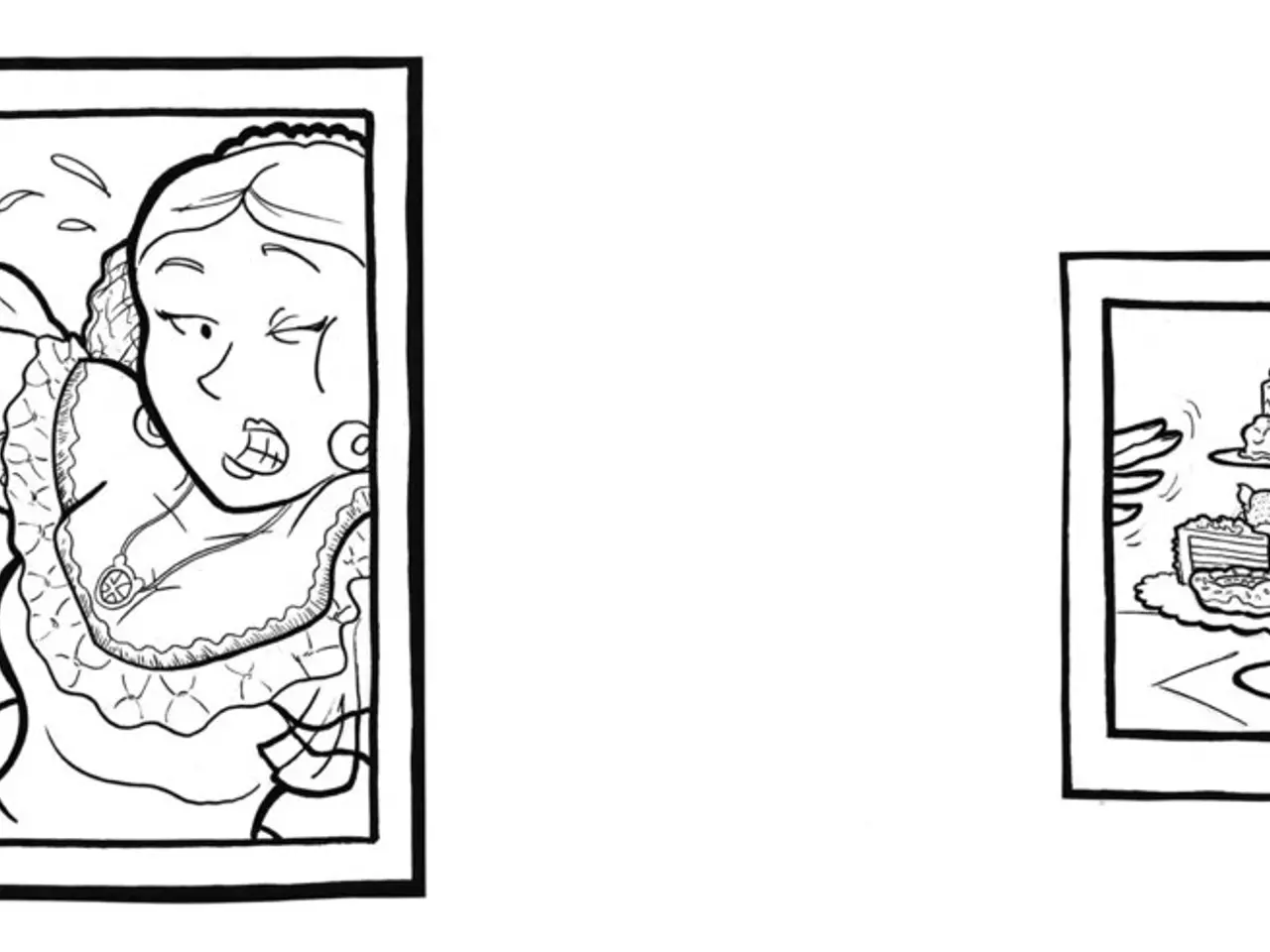Time to reconsider the excessive celebration of TikTok's almond-loving mothers?
In the realm of social media, a new trend has emerged, one that raises concerns for dietitians and nutritionists. The 'almond mum', a term used to describe a woman obsessed with healthy eating and restrictive dieting, is causing a stir. This trend, according to Karine Patel, a nutritionist, trivializes deeply rooted issues around disordered eating and diet culture.
The 'almond mum' is a product of the diet culture generation, obsessed with thinness and presenting the image of being the "perfect healthy example." Her cupboards are full of ingredients free from refined sugars, seed oils, and other buzzwords. However, this trend is more than just a harmless fad. It's a caricature of mothers who inadvertently enforce restrictive and toxic eating behaviors onto their children, often rooted in outdated generational diet habits.
This trend is connected to diet culture, which promotes the idealization of thinness and the moralization of food choices, often encouraging restrictive eating patterns. The 'almond mum' caricature highlights how these harmful behaviors can be passed down within families, perpetuating restrictive eating practices unintentionally.
Moreover, the 'almond mum' phenomenon ties into orthorexia nervosa, a condition characterized by an unhealthy obsession with eating only "pure" or "clean" foods. This obsession can lead to rigid food rules and anxiety around eating, similar to the restrictive habits the 'almond mum' figure enforces. Though not formally recognized as a diagnosable disorder in all diagnostic manuals, orthorexia is increasingly acknowledged in discussions about disordered eating and diet culture.
The internet laughs at the extreme behaviors exhibited by 'almond moms' on TikTok, but it's essential to remember that disordered eating is a serious mental health issue. Reducing it to internet humor risks desensitizing people to its impact. Shaming or making jokes about someone's behavior won't help in the slightest when dealing with eating disorders.
It's crucial to take the issue of eating disorders seriously. Beat's helpline is available 365 days a year for anyone struggling with the issues raised in this article. NCFED also offers information, resources, and counselling for those suffering from eating disorders, as well as their support networks.
Umairah Malik, clinical manager at Beat, states that someone showing signs of an eating disorder, such as excessively restricting food or becoming very concerned about what they're eating, should always be taken seriously. Patel often sees clients, particularly adolescents and young adults, who are struggling to unpick years of restrictive messaging that began in the home.
A survey found that 35% of 13-19-year-olds said their body image causes them to 'often' or 'always' worry, which is the same age group that are more active on social media than ever before. A 2015 study from Common Sense Media reported that children 5 to 8 years old who think their mothers are dissatisfied with their bodies are more likely to feel dissatisfied with their own bodies.
The 'almond mum' trend serves as a critique and reflection of how diet culture and orthorexic tendencies can manifest within family dynamics, often through generational transmission of restrictive eating behaviors and unhealthy relationships with food. It's important to remember that the 'almond mum' is only perpetuating harmful stereotypes of diet culture that we've tried to veer away from in recent years.
The 'almond mum' has become the center of viral TikTok trends, where 'almond moms' across the globe are pitted against each other. However, what starts as a joke can quickly escalate into a dangerous obsession. It's crucial to approach these issues with empathy and understanding, recognizing the potential harm they can cause.
In a world where social media influences our lives more than ever, it's essential to be mindful of the messages we're sending, especially to our children. Let's strive for a culture that promotes health, balance, and body positivity, rather than one that encourages restrictive eating and unhealthy relationships with food.
The 'almond mum' trend, rooted in diet culture, exemplifies unhealthy obsessions with eating only pure or clean foods, linking to the condition known as orthorexia nervosa. This trend is not just a matter of fashion-and-beauty or lifestyle choices; it's a serious mental-health concern that can lead to rigid food rules and anxiety around eating (mental-health).
The 'almond mum' phenomenon is connected to the increasing use of social media by teenagers, where body image concerns are widespread (health-and-wellness). A survey revealed that 35% of 13-19-year-olds often or always worry about their body image, which could be exacerbated by the 'almond mum' trend (social-media).
The dietitians and nutritionists concerned about the 'almond mum' trend urge a shift towards promoting health, balance, and body positivity rather than one that encourages restrictive eating and unhealthy relationships with food (lifestyle).
Moreover, Beat's helpline and NCFED offer resources for individuals struggling with eating disorders, emphasizing the need for empathy and understanding when dealing with these serious mental-health issues (entertainment).




